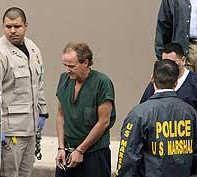 Mounting tension between the export industry and DDTC became evident this week when a major coalition of the leading trade associations — The Coalition for Security and Competitiveness — sent a letter to President Bush requesting a meeting to discuss proposed reforms relating to DDTC. Among the members of the coalition are the Aerospace Industries Association, the National Association of Manufacturers and the U.S. Chamber of Commerce.
Mounting tension between the export industry and DDTC became evident this week when a major coalition of the leading trade associations — The Coalition for Security and Competitiveness — sent a letter to President Bush requesting a meeting to discuss proposed reforms relating to DDTC. Among the members of the coalition are the Aerospace Industries Association, the National Association of Manufacturers and the U.S. Chamber of Commerce.
It should not comes as a surprise to any one, DDTC staff included, that the specific proposals requested by the Coalition focused on the abysmal delays that have become the norm at DDTC as well as the lack of transparency and cooperation by DDTC with the industry that it regulates. Just last week the DDTC posted another jeremiad on its website about the low quality applications it was receiving and renewed its vow to simply return these applications without action (including the simple action of picking up the telephone to call the exporter.) The Coalition proposal responds to this attitude on the part of DDTC by proposing that the DDTC be required to provide notice of intent to deny or intent to return without action before such decisions are finalized.
The Coalition proposal also requests that funds be released to provide additional licensing staff to the DDTC and further requests that licensing actions be taken within reasonable and specified time periods. The specific processing periods requested by the Coalition will no doubt lead most exporters to swoon with joy:
The current export control system is not delivering decisions on technology release in the time sensitive fashion critical to U.S. interests. As both an individual proposal and a yardstick to measure progress, we believe a more efficient export control system should process decisions on individual “unstaffed†(i.e. State Department review only) licenses or decide to send individual licenses for inter-agency “staffing†within 5 calendar days. More complex agreements that may or may not require inter-agency review should be either processed as unstaffed or staffed out within 10 calendar days. If licenses or agreements are staffed, the inter-agency review should be completed within a total of 30 days. Understanding that licenses and agreements for NATO+3 allies may involve more sophisticated technology transfer requests, the fact that they are close allies should be given due consideration and their staffed license and agreement applications fast-tracked and completed within 20 total days. A final licensing decision by the State Department after the completion of an interagency review should be issued within five days.
It’s hard to say whether the adoption of these processing metrics is likely, but we can always hope, can’t we?

 Posted by
Posted by  Category:
Category: 

 One of the things that SCP Global Technologies got in trouble for according to the
One of the things that SCP Global Technologies got in trouble for according to the  With profound apologies to Mel Brooks, it’s springtime for Muammar in Libya, winter for Hugo Chavez! No, that’s not the latest lyric from a Broadway hit; rather it’s a reference to a
With profound apologies to Mel Brooks, it’s springtime for Muammar in Libya, winter for Hugo Chavez! No, that’s not the latest lyric from a Broadway hit; rather it’s a reference to a  Last week a Portland, Oregon food additive broker
Last week a Portland, Oregon food additive broker  Last week we were
Last week we were 

